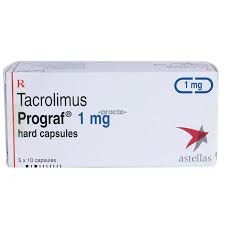By NEELA RAMSUNDAR
A tenancy agreement is a popular contract attorneys are asked to prepare. It’s certainly not wise for any landowner to allow a tenant to rent property without a properly drafted contract regulating the terms and conditions of their stay.
On one extreme, you would want to avoid a tenant being able to claim they have accrued squatters’ rights over your property (known as an adverse possession claim and yes, this happens).
On the other extreme, you would not want unpleasant spats with your tenant which could have been prevented by a properly written contract.
While some landlords opt to prepare their own tenancy agreements, there is something to be said for having an experienced lawyer draft it instead as this is another one of those heavily litigated areas.
Consequently, there is much law on, for example, the interpretation to be placed on particular words or phrases used such as “good and tenantable repair,” “right of re-entry,” and “quiet enjoyment.”
Knowledgeable attorneys would be able to draft the tenancy agreements specifically tailored to your needs, while bearing in mind the applicable laws, so that you are as fully protected as possible.
Looking specifically at tenancy agreements for residential properties, first decide whether you wish the contract to be for a fixed amount of time or periodic (e.g. from month to month).
Generally, with fixed term contracts, the tenant is not entitled to leave before the term ends. They are usually short term, such as six months or a year. Month to month tenancy agreements, however, are common: the tenant continues staying on your property, paying a monthly rent, until either party brings the tenancy to an end using the agreed method for so doing.
Another important consideration is the security deposit. This is a sum of money usually paid upfront to cover certain types of damage to the property discovered after the tenant leaves. After deducting the cost of repairs, any sum left over is normally returned to the tenant. A common practice is to have the tenant pay a sum equal to one month’s rent. Consider what type of damage will be covered by the security deposit, and whether the tenant will be liable for any repair costs exceeding the amount of the deposit.
Here is a checklist of other important areas that should be included in your tenancy agreement:
- Are the names of the landlord and the tenant set out, and spelt correctly? (Obtain a form of picture identification from the Tenant for your personal records. A police certificate of good character may also be a good precaution.)
- What is being rented? State clearly the address of the rented property. Include a description of the number and type of rooms, the square footage, the fixtures and fittings, any outdoor areas, any common areas, any parking spaces allowed etc.
- What is the rent, when is it to be paid (e.g. at the beginning of every month), who it is to be paid to (e.g. to a named agent of the landlord), and how it is to be paid (e.g. directly into a bank account)? Not uncommonly, persons agree to rent your nicely laid out property, but being barely able to afford it, soon defaults in payment. Requesting a letter of employment from the prospective Tenant may be a way to avoid this.
- When does the tenancy start?
- What happens if the rent is late? Many landlords allow a short grace period e.g. up to five days to pay the rent before it is considered a breach of contract.
- What utility bills, if any, does the tenant have to pay?
- Is anyone other than the tenant allowed to live on the premises? If so, their names and a copy of a form of identification should be obtained.
- If the tenant’s property is damaged through a fire, flooding, or an act of god, is the landlord responsible for compensation?
- When can the parties bring the tenancy to an end?
- When does the tenant breach the tenancy agreement, and what happens when a breach occurs? (This is a highly contentious area and should be carefully worded).
- Are any alterations allowed e.g. can the colour paint on the walls be changed?
- Is smoking prohibited? Are pets allowed?
- Is the landlord permitted to inspect the property for damage?
- Is the property to be used for any purpose other than residential purposes e.g. to store goods to be sold for profit?
- Is the tenant allowed to sub-let (rent) to someone else?
Drafting tenancy agreements, like many other contracts, is a science and an art. Take the time to get a well-crafted and well-thought-out one, it may save you from a lot of needless headaches!
© Neela Ramsundar, LL.B (HONS), L.E.C
Civil Litigation Attorney at Law & Certified Mediator
Disclaimer: The contents of this article is for general informative purposes only. It does not provide legal advice and does not create an attorney – client relationship. For legal advice, please contact an Attorney-at-Law of your choosing directly.
![]()










